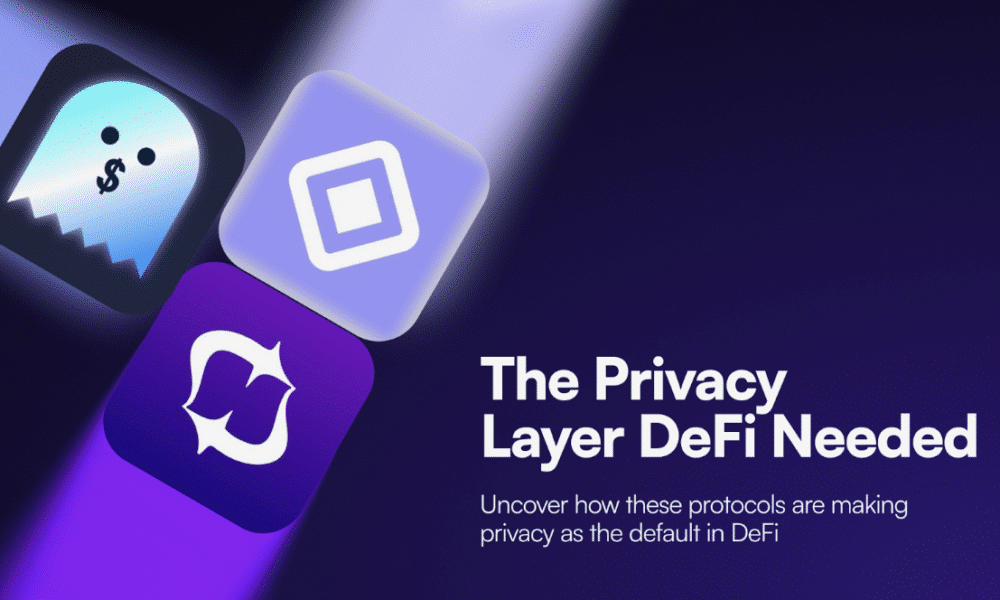
As the world of decentralized finance (DeFi) continues to expand, the conversation around privacy has reached a crucial turning point. With thousands of discussions flooding social platforms like Crypto Twitter daily, one thing has become clear—privacy in DeFi can no longer be considered a luxury. It must become a foundational aspect of the ecosystem to ensure mass adoption and user security.
The Rise of Privacy in DeFi
In the early days, protocols like Zcash and Monero attracted niche communities such as cypherpunks and libertarians. These privacy-oriented platforms paved the way for anonymity within crypto. However, the landscape is changing rapidly, with average retail traders and even financial institutions recognizing the importance of safeguarding their on-chain activity.
This shift has brought about what many are now calling the “privacy summer,” as billions of dollars are pouring into innovative privacy protocols that could reshape DeFi’s future. Here, we explore three groundbreaking projects leading the charge.
Privacy Protocols Driving Innovation
1. PrivacyCash
Designed for the Solana ecosystem, PrivacyCash is a next-generation privacy protocol still in its development stage on devnet. Despite being early in its journey, it has already processed over $1.1 million in transaction volume. Its focus on a user-friendly experience, enabling users to “Send SOL privately,” makes it a serious contender to bring privacy to the mainstream in fast transaction ecosystems.
Why It Matters: The simplicity of PrivacyCash makes it accessible to everyday users while proving that privacy can be seamlessly integrated into high-speed, scalable ecosystems.
2. HoudiniSwap
As one of the most comprehensive cross-chain privacy solutions in DeFi, HoudiniSwap has already processed an impressive $1.6 billion in transaction volume, serving over 150,000 users. Its advanced capabilities allow invisibly transferring capital across different blockchain ecosystems, meeting traders’ demand for privacy in the multichain economy.
Why It Matters: By blending privacy with liquidity, HoudiniSwap showcases how anonymity and large-scale transactions can coexist harmoniously.
3. Aztec
The focus of Aztec is to shift the conversation from simple transactional privacy to composable privacy for complex applications. Using its proprietary programming language, Noir, Aztec allows developers to control what remains visible and what stays encrypted. Currently, it has processed over 15,000 transactions supported by 20,000 active full nodes.
Why It Matters: Aztec creates an opportunity for developers to build advanced, privacy-focused DeFi applications that fit a wide variety of use cases, from anonymous lending platforms to encrypted token swaps.
Why Privacy Matters in DeFi
Privacy is no longer a niche concern but a fundamental requirement to make decentralized finance secure, scalable, and attractive to institutional investors. As seen with the billions of dollars flowing through protocols such as PrivacyCash, HoudiniSwap, and Aztec, user demand for privacy is skyrocketing. With regulatory clarity on the horizon and privacy-first innovations emerging, the DeFi space is set for a revolution.
Looking to step up your privacy game while trading crypto? Check out Trezor Model T Hardware Wallet, a secure solution for storing your cryptocurrency and protecting your transactions from prying eyes.
The privacy revolution is only just beginning, and those shaping the infrastructure will define the future of DeFi for years to come. Whether it’s through pioneering usability like PrivacyCash, achieving seamless cross-chain liquidity with HoudiniSwap, or enabling programmable privacy through Aztec, the next evolution of decentralized finance places privacy at its core.






